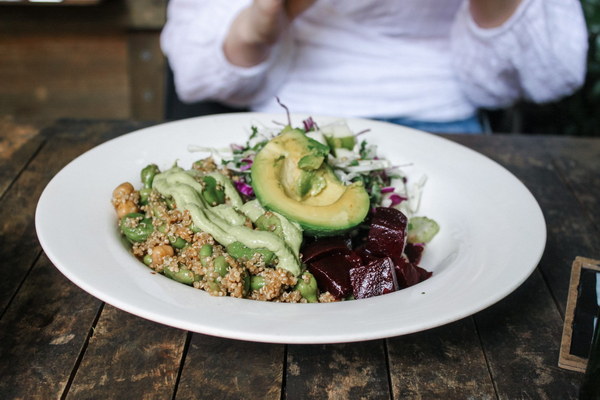Healing with Ginseng A Natural Remedy for Intestinal Obstruction
Intestinal obstruction, a condition that affects the movement of digested material through the gastrointestinal tract, can be a painful and life-threatening condition. While conventional treatments may be necessary in severe cases, many individuals seek alternative remedies to alleviate symptoms and support their overall health. One such natural remedy gaining popularity is the use of ginseng, an herb with a rich history of traditional use in Chinese medicine. In this article, we will explore the benefits of ginseng for treating intestinal obstruction and how it can be incorporated into a holistic treatment plan.
Ginseng, scientifically known as Panax ginseng, is a plant that has been used for thousands of years in traditional Chinese medicine. It is believed to boost the immune system, improve cognitive function, and enhance overall vitality. In recent years, scientific research has begun to uncover the potential benefits of ginseng in treating various health conditions, including intestinal obstruction.
The primary active compounds found in ginseng are ginsenosides, which are thought to have anti-inflammatory, antioxidant, and immune-boosting properties. These compounds may help reduce inflammation and swelling in the gastrointestinal tract, which can contribute to the relief of symptoms associated with intestinal obstruction.

Here's how ginseng can be used to treat intestinal obstruction:
1. Anti-inflammatory effects: Intestinal obstruction often leads to inflammation and swelling in the affected area. Ginseng's anti-inflammatory properties can help reduce this inflammation, thereby alleviating pain and discomfort.
2. Immune system support: A weakened immune system can exacerbate the symptoms of intestinal obstruction. Ginseng's immune-boosting effects can help strengthen the immune response and improve overall health.
3. Improved digestion: Ginseng may improve digestive function by enhancing the production of digestive enzymes and promoting the movement of food through the gastrointestinal tract. This can help reduce the risk of future obstructions.
4. Antioxidant properties: Ginseng contains antioxidants that can help protect the gastrointestinal tract from oxidative stress, which can lead to further inflammation and damage.
To incorporate ginseng into a treatment plan for intestinal obstruction, consider the following recommendations:
1. Consult with a healthcare professional: Before starting any new treatment, it is essential to consult with a healthcare provider to ensure it is safe and appropriate for your specific condition.
2. Choose the right type of ginseng: There are several types of ginseng available, including American, Asian, and Siberian ginseng. Asian ginseng is often considered the most effective for treating intestinal obstruction.
3. Determine the correct dosage: The recommended dosage of ginseng for intestinal obstruction varies depending on the individual's age, weight, and overall health. It is best to start with a lower dosage and gradually increase as needed, under the guidance of a healthcare provider.
4. Incorporate ginseng into your diet: You can consume ginseng in various forms, such as tea, capsules, or powder. Adding ginseng tea to your daily routine or incorporating ginseng powder into smoothies can be beneficial.
5. Monitor your symptoms: Pay close attention to any changes in your symptoms and report them to your healthcare provider. If symptoms worsen or new symptoms arise, seek medical attention immediately.
In conclusion, ginseng is a natural remedy with potential benefits for individuals suffering from intestinal obstruction. Its anti-inflammatory, immune-boosting, and digestive-enhancing properties may help alleviate symptoms and improve overall health. However, it is crucial to consult with a healthcare provider before starting any new treatment and to monitor symptoms closely. By incorporating ginseng into a holistic treatment plan, individuals can work towards healing their intestinal obstruction and improving their quality of life.









